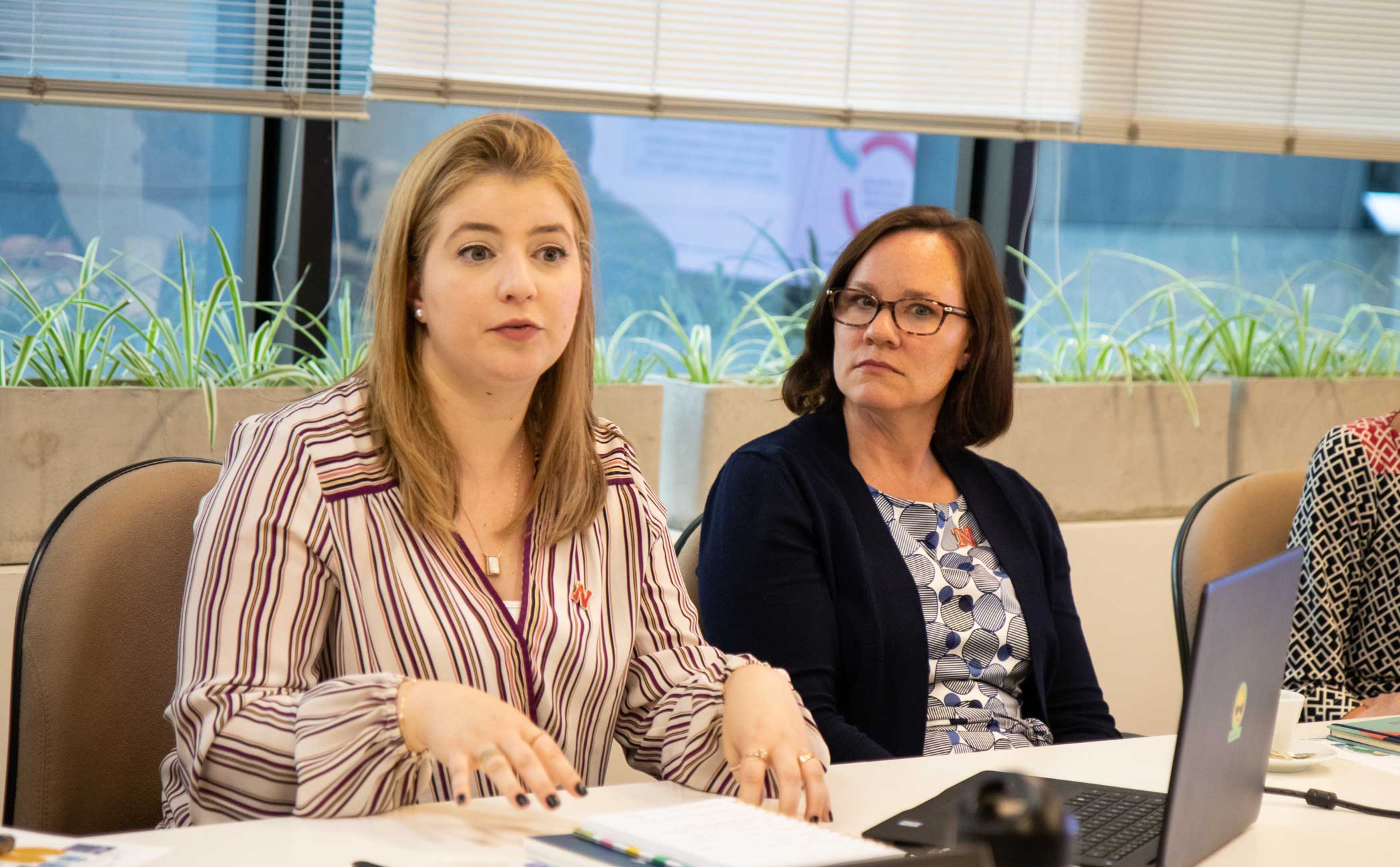
TAPP brings new tool to students, parents and teachers in Brazil
18 Apr 2022 By Chuck Green, CYFS
As students in Brazil slowly return to in-person learning following the COVID-19 pandemic, some are being introduced to a program designed to foster parent-teacher partnerships to help boost children’s academic and social and emotional success.
Renata T.M. Gomes, graduate student in the Nebraska Center for Research on Children, Youth, Families and Schools, is leading the effort to bring Teachers and Parents as Partners (TAPP) to Brazil.
TAPP is an evidence-based, problem-solving and decision-making intervention developed by CYFS Director Susan Sheridan and other Nebraska researchers that builds on student strengths and fosters collaboration among parents and teachers to enhance students’ academic, behavioral and social outcomes.
“There is a huge gap between teachers and students’ parents in Brazil right now,” she said. “There is no structured, sequential and scientific-proven strategy for teachers and parents in Brazil to collaborate with one another, so this is an effective tool to help them.”
Gomes’ dissertation project and pilot study are an expansion of the broader Nebraska-Brazil Early Childhood Partnership. She conducted a systematic review of cultural adaptations of evidence-based behavioral interventions to identify the best models and practices to translate and adapt interventions to Brazilian culture.
Gomes worked with Federal University of São Paulo (UNIFESP) for her Brazilian institutional review board approval. Additionally, the Porvir Institute published a story about TAPP in 2020, and will continue to gather, analyze and disseminate data about the importance of family-school partnerships, specifically about the TAPP process.
During school closures in Brazil due to the pandemic, Gomes and Sheridan were invited to co-write a book chapter titled, “Family-School Partnership: The role of the School Psychologist in bringing the two contexts closer.”
For the project, Gomes recruited a focus group of parents and teachers to learn about TAPP, assess the program’s acceptance and provide feedback on how to best tailor it to Brazilian culture. Data collection on the first group of participating students, parents and teachers began in spring 2022, when in-person classroom instruction resumed and researchers were allowed back in Brazilian schools following community safety protocols.
The one-year pilot project includes students from the private Camino School in São Paulo, along with their parents and teachers, as the first participants in TAPP for Brazilian Families.
Like their American counterparts, Brazilian students learned online through the much of the pandemic. Some schools still offer a hybrid instruction format of in-person and remote learning, but the Camino School has returned to a full in-person curriculum.
Gomes notes that Brazil’s institutions and policymakers are emphasizing the need for engagement and collaboration between parents and teachers. The widespread remote learning throughout the pandemic, she said, illustrated the importance of parent-teacher partnerships.
“Research has proven that teachers and parents need to collaborate to improve student outcomes and promote healthy relationships among them, so TAPP is particularly powerful and useful right now,” Gomes said. “I’m excited about the opportunity to bring TAPP to Brazil.”
This project aligns with the UNL Grand Challenge of early childhood education and development.
College of Education and Human Sciences